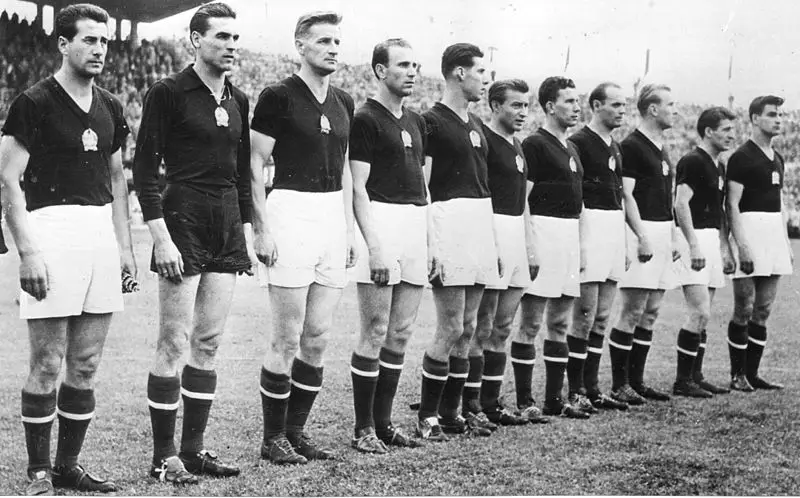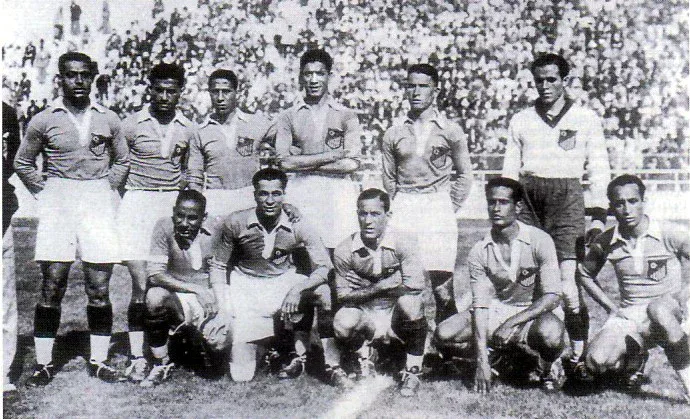In France, the history of football is strongly linked to that of immigration. French football has developed thanks to the technical contribution of players recruited outside the national territory and by the integration of the children of foreigners to the Blues. Raymond Kopa, Michel Platini and Zinedine Zidane, the three tutelary figures of French football, are, to varying degrees, descendants of immigrants.
The round ball is thus an essential place of memory in the history of immigration in France. The French team alone is an often magnifying, sometimes distorting mirror of the different waves of French immigration. Similarly, the world of football, its two million practitioners, reflects the complex relationship that French society maintains with foreigners who come to seek asylum and work in France. It’s hard to believe that nowadays, you can bet online for soccer from your phone and make instant withdrawal casinos.
From importation to nationalization: the first French football
As elsewhere in Europe, association football is first and foremost an imported game, whose history begins in 1872 with Le Havre Athletic Club, the first sports club founded on national soil by British expatriates, and begins to spread in the 1890s when the English of the Standard Athletic Club and the Scots of the White Rovers launched the first football competitions in the Parisian suburbs.
The Swiss also played an important role in the introduction of football in France, particularly in Marseille where the Stade Helvétique represented footballing excellence before 1914. The club, made up of Swiss citizens, won the title of French champion from the Union of French Athletic Sports Societies (USFSA) in 1909 and 1911.
However, the diffusion of association football in cities and to a more modest public is also accompanied by the nationalization of the game.
Challenging the British interpersonality of Standard and Rovers, young Parisians founded clubs or teams that wanted to be national like the French club. And, on the eve of the Great War, the victories of the Helvetic Stadium are debated within the USFSA: what is the value of a title of champion of France, if it is won by nationals of a foreign country? ?
The recruitment of a foreign professional elite
The spectacle of football developed after the creation of the French Federation of Football Association (1919). To strengthen their workforce, even before the official introduction of professionalism in 1932, the big clubs went abroad to seek qualified labor which was sorely lacking in France at the time.
After having appealed to the British, such as Scottish coach Victor Gibson (FC Sète, SO Montpellier, Olympique de Marseille and FC Sochaux), French clubs are turning to Central Europe or South America. During the 1930s, French professional teams had, depending on the season, 20 to 35% foreign footballers. Many are naturalized, the best strengthening the ranks of the France team like the Viennese goalkeeper Rudi Hiden or his compatriot Auguste Jordan.
The call for settlements
In 1931, Raoul Diagne, son of Senegalese deputy Blaise Diagne, was the first black footballer to wear the blue jersey. He was joined in the 1930s by North African players, including Moroccan Larbi Ben Barek. Passed by Olympique de Marseille, Stade Français and Atletico Madrid, the one the press nicknamed “the black pearl” wore the blue jersey from 1938 to 1954.
His performances may have aroused comments tinged with paternalism and even racism. Nevertheless, at the dawn of the Glorious Thirties, French clubs decided to recruit in North Africa, mainly in Algeria, like the robust defender of AS Monaco, Mustapha Zitouni, or the hope of AS Saint-Etienne, striker Rachid Mekhloufi.
If the arrival of North African players was greatly slowed down by the sporting developments of the Algerian war, and in particular the constitution of an Algerian team by the National Liberation Front (FLN) in 1958, the succession was assured. by footballers from sub-Saharan Africa. Among them, the founder of a dynasty of champions: the Cameroonian Zacharie Noah, father of Yannick and grandfather of Joakim.




